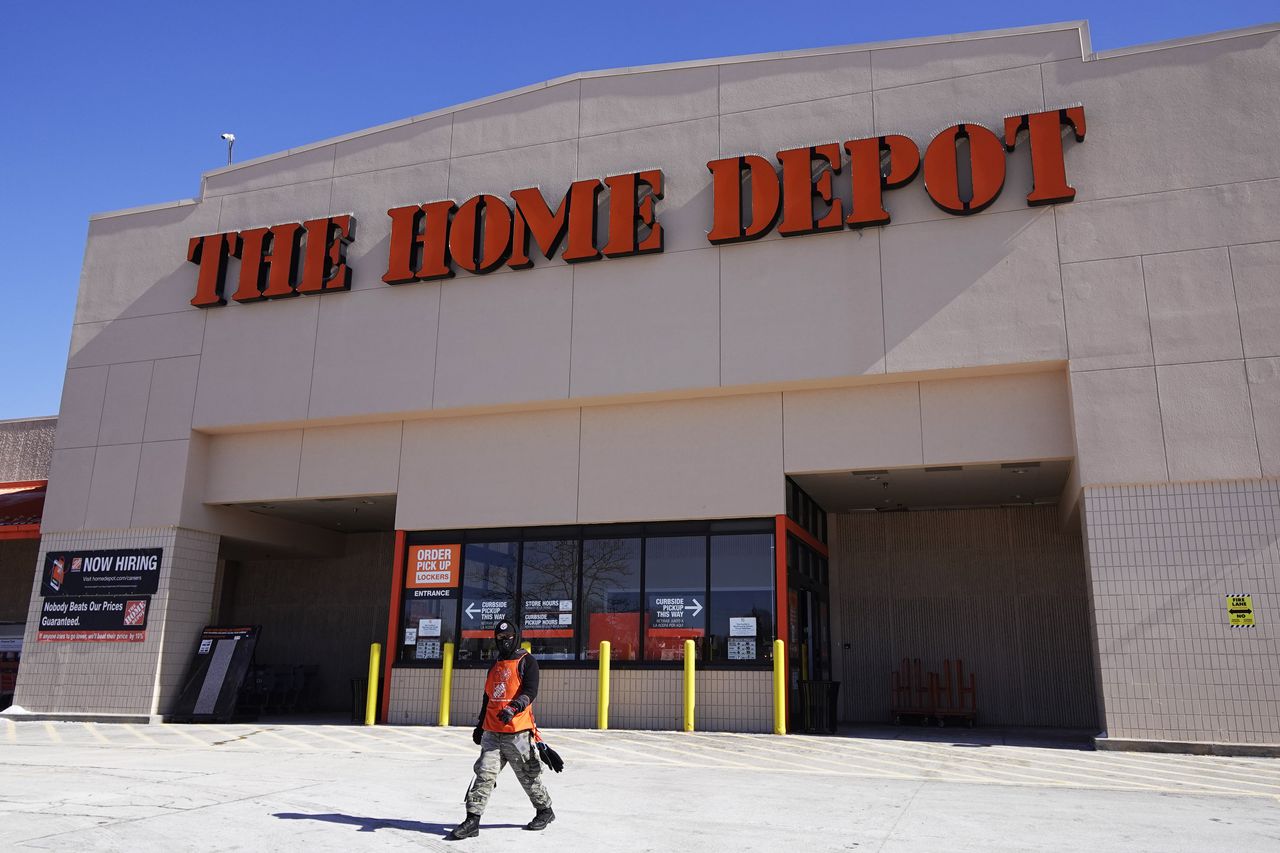Home Depot raises starting pay to $15 an hour as stock struggles
The Home Depot posted strong profits in its final quarter of 2022, but a tepid outlook for this year sank shares of the home improvement retailer before markets opened Tuesday.
The Atlanta company had a fourth-quarter profit of $3.36 billion, or $3.30 per share, which is 3 cents better than Wall Street had expected, according to a survey of analysts by Zacks Investment Research.
Quarterly revenue of $35.83 billion was just shy of expectations, but the focus was on the retailer’s projections for this year.
Home Depot sees a decline for annual per-share earnings in the mid-single-digit percentage, which caught industry analysts off guard. Wall Street was also projecting a slight uptick in sales, but Home Depot said revenue would be flat.
The company also said Tuesday that it would spend $1 billion on wage increases for its U.S. and Canadian hourly workers, starting this month.
Starting pay will be at least $15 per hour in all markets.
Walmart announced in January that it would be raising its hourly wage to an average of $17.50, while Target invested $300 million in hourly wage increases last year.
The pay raises could also help Home Depot head off a fledgling campaign to unionize its stores, which it opposes. Workers at a Home Depot in Philadelphia filed to hold a union election last September, saying workers weren’t benefiting from Home Depot’s strong sales and stores were understaffed. Workers at the store voted to reject the union in November.
Home Depot employs 437,000 people in the U.S. and 34,000 in Canada. The vast majority are hourly employees, the company said. The company operates 2,000 stores in the U.S. and 182 stores in Canada.
“This investment will help us attract and retain the best talent into our pipeline,” Home Depot’s Chairman, President and CEO Ted Decker wrote in an email to employees. Decker noted that 90% of the chain’s store leadership started as hourly workers.
Meanwhile, shares slid 4% in premarket trading.
Home Depot posted huge numbers during the pandemic as millions stuck at home either reworked the space where they lived, or found more spacious accommodations. All of that put the world’s largest home improvement retailer in high demand, both for home owners, and on Wall Street.
The global economy, however, has been distorted as it tries to put the pandemic behind it, with inflation elevated everywhere and the booming housing market cooling down, partly due to actions taken by the Federal Reserve to cool inflation, namely raising interest rates.
U.S. home sales tumbled to the slowest pace in nearly a decade as soaring mortgage rates and sky high prices in 2022 pushed homeownership out of reach for many Americans.
“After a year of defying gravity, the slowing economy and pressures on consumers have finally caught up with Home Depot,” said Neil Saunders, managing director of GlobalData. “To be fair, the final quarter results are not terrible – especially as they come off the back of a long period of extremely good growth – but they nevertheless represent a material slowdown and are the worst quarterly performance in two years.”
The company also said it would increase its quarterly dividend by 10%, to $2.09, for an annual dividend of $8.36 per share.
